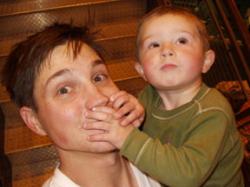Daniel A Libby
age ~48
from Woodinville, WA
- Also known as:
-
- Daniel P Libby
- Daniel West Port
- Dainel Libby
- Daniel Libbyjr
- Libby Qianna
Daniel Libby Phones & Addresses
- Woodinville, WA
- Lakewood, WA
- 814 E E St, Centralia, WA 98531
- Chehalis, WA
- Westport, WA
- Tacoma, WA
- Olympia, WA
- 617 Richmond Ave, Centralia, WA 98531
Work
-
Position:Administrative Support Occupations, Including Clerical Occupations
Education
-
Degree:Associate degree or higher
Resumes

Daniel Libby
view sourceLocation:
Denver, Colorado
Industry:
Mechanical or Industrial Engineering
Skills:
Process Engineering
Engineering
Lean Manufacturing
Project Planning
Continuous Improvement
Six Sigma
Manufacturing
Project Engineering
Process Improvement
Project Management
Engineering
Lean Manufacturing
Project Planning
Continuous Improvement
Six Sigma
Manufacturing
Project Engineering
Process Improvement
Project Management

Mechanical Engineer At Boeing
view sourcePosition:
Mechanical Engineer at Boeing
Location:
Greater Seattle Area
Industry:
Aviation & Aerospace
Work:
Boeing - Everett, WA since Jun 2011
Mechanical Engineer
Mechanical Engineer

Systems Support At Eplus
view sourceLocation:
United States

Daniel Libby
view sourceLocation:
United States
Medicine Doctors

Daniel M. Libby
view sourceSpecialties:
Pulmonary Disease
Work:
Pulmonary Consultants Of New York
635 Madison Ave STE 1101, New York, NY 10022
2126286611 (phone), 2125889897 (fax)
635 Madison Ave STE 1101, New York, NY 10022
2126286611 (phone), 2125889897 (fax)
Education:
Medical School
Baylor College of Medicine
Graduated: 1974
Baylor College of Medicine
Graduated: 1974
Procedures:
Lung Biopsy
Allergy Testing
Electrocardiogram (EKG or ECG)
Pulmonary Function Tests
Vaccine Administration
Allergy Testing
Electrocardiogram (EKG or ECG)
Pulmonary Function Tests
Vaccine Administration
Conditions:
Acute Bronchitis
Acute Pharyngitis
Acute Sinusitis
Acute Upper Respiratory Tract Infections
Anxiety Phobic Disorders
Acute Pharyngitis
Acute Sinusitis
Acute Upper Respiratory Tract Infections
Anxiety Phobic Disorders
Languages:
English
Spanish
Spanish
Description:
Dr. Libby graduated from the Baylor College of Medicine in 1974. He works in New York, NY and specializes in Pulmonary Disease. Dr. Libby is affiliated with New York Presbyterian Hospital Weill Cornell Medical Center.
License Records
Daniel A Libby
License #:
E096107 - Active
Category:
Emergency medical services
Issued Date:
Jan 29, 2013
Expiration Date:
Sep 30, 2018
Type:
San Francisco EMS Agency
Name / Title
Company / Classification
Phones & Addresses
QUARTERDECK ENTERPRISES MARINE SURVEYING LLC
Us Patents
-
Mitigating Timing Attacks Via Dynamically Triggered Time Dilation
view source -
US Patent:20190327075, Oct 24, 2019
-
Filed:Apr 24, 2018
-
Appl. No.:15/961830
-
Inventors:- Redmond WA, US
Tobin TITUS - Kirkland WA, US
Daniel LIBBY - Kirkland WA, US
Brian MANTHOS - Bellevue WA, US
Colin PACITTI - Seattle WA, US
Pengxiang ZHAO - Bellevue WA, US
Matthew MILLER - Seattle WA, US
Jordan Thomas RABET - Seattle WA, US
John HAZEN - Kirkland WA, US -
International Classification:H04L 9/00
-
Abstract:Techniques for mitigating timing attacks via dynamically triggered time dilation are provided. According to one set of embodiments, a computer system can track a count of application programming interface (API) calls or callbacks made by a program within each of a series of time buckets. The computer system can further determine that the count exceeds a threshold count for a predefined consecutive number of time buckets. Upon making this determination, the computer system can trigger time dilation with respect to the program, where the time dilation causes the program to observe a dilated view of time relative to real time.
-
Mitigating Timing Attacks Via Dynamically Scaled Time Dilation
view source -
US Patent:20190327076, Oct 24, 2019
-
Filed:Apr 24, 2018
-
Appl. No.:15/961849
-
Inventors:- Redmond WA, US
Tobin TITUS - Kirkland WA, US
Daniel LIBBY - Kirkland WA, US
Brian MANTHOS - Bellevue WA, US
Colin PACITTI - Seattle WA, US
Pengxiang ZHAO - Bellevue WA, US
Matthew MILLER - Seattle WA, US
Jordan Thomas RABET - Seattle WA, US
John HAZEN - Kirkland WA, US -
International Classification:H04L 9/00
-
Abstract:Techniques for mitigating timing attacks via dynamically scaled time dilation are provided. According to one set of embodiments, a computer system can enable time dilation with respect to a program, where the time dilation causes the program to observe a dilated view of time relative to real time. Then, while the time dilation is enabled, the computer system can track a count of application programming interface (API) calls or callbacks made by a program within each of a series of time buckets and, based on counts tracked for a range of recent time buckets, scale up or scale down a degree of the time dilation.
Youtube
Myspace
Flickr
Plaxo

K. Daniel Libby
view sourceNew York City / GreenwichManaging Partner at Portfolio Strategies Group
Classmates

Daniel Daniel Libby (Libby)
view sourceSchools:
Portage Park Elementary School Chicago IL 1984-1986, St. Pascal School Chicago IL 1986-1989
Community:
Lynn Thomas

Daniel Libby
view sourceSchools:
Ivy Drive Elementary School Bristol CT 1970-1977, Northeast Middle School Bristol CT 1977-1979

Daniel Libby
view sourceSchools:
West Cottonwood Junior High School Cottonwood CA 1973-1978
Community:
Joni Schildgen

Daniel Libby
view sourceSchools:
Camden High School Camden ME 1986-1990
Community:
Jerry Littlefield, Jackie Young, Wilma Leonard, Maurice Payson, Rosemary Barrows

Daniel Gene Libby
view sourceSchools:
Freeport High School Freeport ME 1980-1984
Community:
Carol Maxell

Daniel Libby
view sourceSchools:
Adna High School Adna WA 1992-1996
Community:
Deanne Gerrer, Sandy Sides, Regina Maninfior, Mandie Willenberg

Daniel Libby | South King...
view source
Daniel Libby | Louisville...
view sourceGoogleplus

Daniel Libby

Daniel Libby

Daniel Libby
Lived:
Seattle, WA
Work:
Microsoft - SDE

Daniel Libby

Daniel Libby
view source
Daniel Libby
view source
Daniel J Libby
view source
Libby Daniel
view source
Daniel Libby
view source
Libby Daniel
view source
Daniel Libby
view source
Daniel A Libby
view sourceGet Report for Daniel A Libby from Woodinville, WA, age ~48













